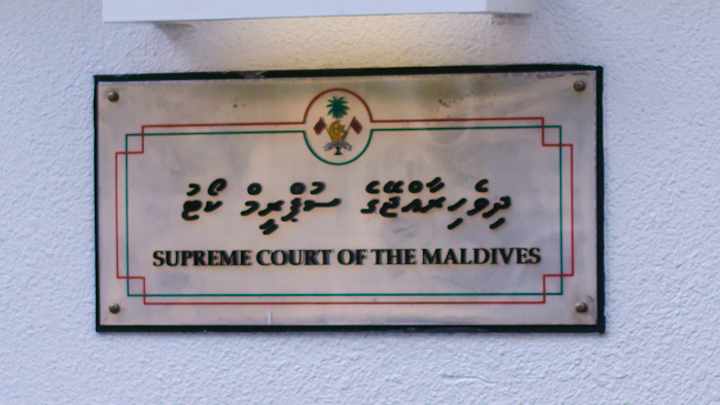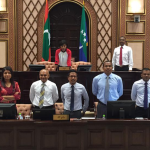The judiciary is planning to submit drastic changes this week to the new penal code due to come into force on July 16, Minivan News has learned.
A reliable source told Minivan News that the proposed changes are modelled on South Sudan’s penal code and will undo a decade’s work of modernising the Maldives’ criminal justice system.
“The new penal code is very modern, drafted over 10 years with the participation of several sectors. The planned changes will set us back by 50 years,” the source said.
The existing penal code was adopted in 1968 and has been criticised as draconian, outdated and not in line with the Maldives’ obligations under international human rights conventions.
The new penal code was hailed as a landmark law that would usher in major reforms to the Maldivian criminal justice system.
Legal experts have said that with the new law, the Maldives will become the first Islamic country to adopt a criminal law compatible with both Islamic Shariah and international human rights standards.
A second credible source told Minivan News that only five percent of the new penal code will remain with the new changes. The changes were based on the penal codes of countries such as Egypt, Libya, and Qatar.
The source said that the pro-government majority in parliament is planning to delay the enactment of the new penal code by a further 90 days before July 16.
The 1966 penal code will remain in place for three months and the new penal code will be annulled, the source said. Afterwards a new law will be passed with the changes proposed by the judiciary.
The changes were drafted by the judiciary in a process led by the Supreme Court, Minivan News understands.
“The Supreme Court or judges should not be involved in writing laws. This is exactly how laws must not be written,” another lawyer familiar with the matter said.
The Maldivian judiciary has been widely criticised over “politicisation” and the lack of academic qualification of sitting judges. The new penal code would have minimised the discretion of judges in meting out punishments.
The new code also brings together provisions in some 90 laws that specify criminal offences under one law.
Its first draft was prepared in 2006 at the request of then-Attorney General Hassan Saeed by Professor Paul H. Robison, a legal expert at the University of Pennsylvania.
The legislation was stalled at the 16th People’s Majlis with no progress. The bill was resubmitted in late 2009 after the election of the 17th Majlis, where it remained with a committee until December 2013.
In a first vote, the law was rejected 36-34 and returned to a parliamentary committee.
It finally passed in April 2014 with 48 votes in favour and a one-year period for preparation.
Although the law was due to come into force in April 2015, the parliament delayed its enactment by three months, claiming more time was needed to raise awareness among the public and address concerns of religious scholars.
However, both the attorney general and prosecutor general have said there is no reason to delay the penal code’s enforcement. The government has trained some 1,100 individuals including state prosecutors, police officers, customs staff, lawyers and journalists on the new law.
The Supreme Court, however, barred judges and magistrates from attending training sessions.
Former deputy prosecutor general Hussain Shameem, who conducted training on the new penal code, said the legal resource centre set up by the attorney general and the UNDP had invited all judges and magistrates, but “none of them attended the trainings.”
Shameem says the legal resource centre could train all of the 186 judges and magistrates in the country within two weeks.







That's what you get if you give an absolute majority to 1 party. Normally I'd say I hope most people have learned their lesson, but since they didn't learn their lesson after a 30 year Gayoom dictatorship, they won't learn it this time either. Ignorance and petty greed brings the Maldives into trouble.
Canada, U.S., and U.K should teach themselves democracy before talking about Maldives. Sudan, on the other hand, is the epitome of democracy and the rule of law, so we're going to follow their example in our penal code. Yep, this isn't crazy at all.